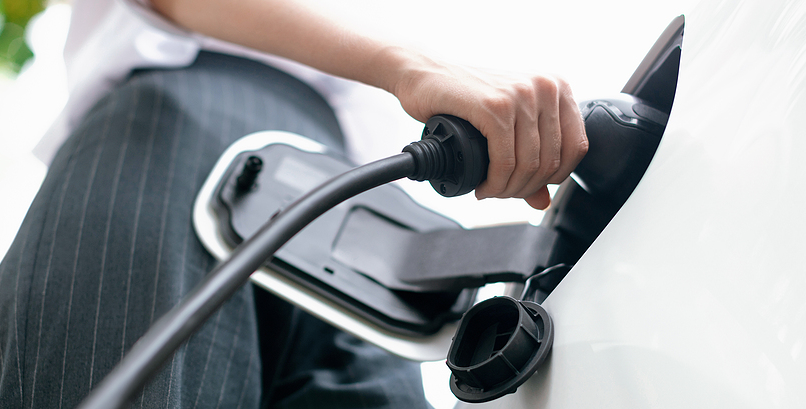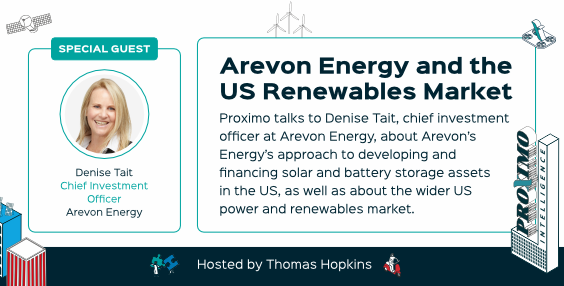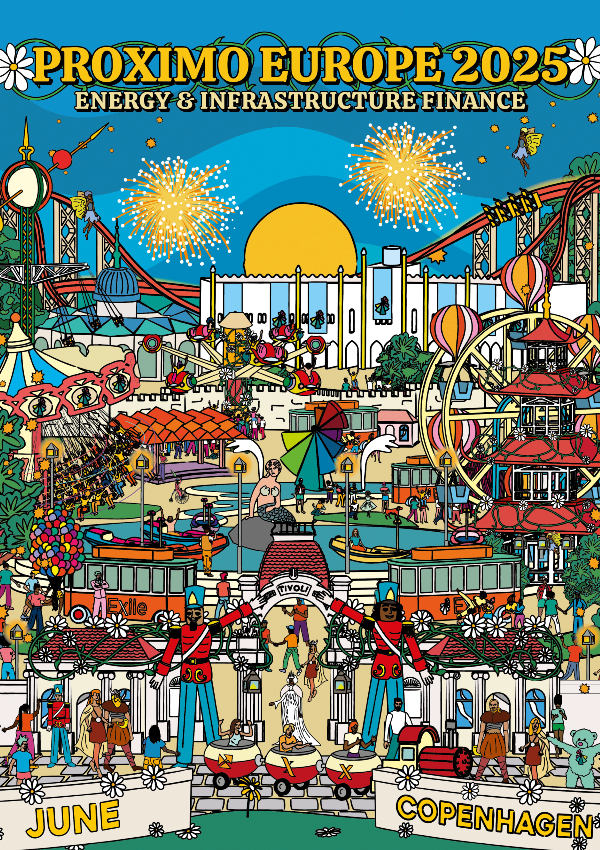Proximo Weekly: EV network project financing – still on trickle charge
The public EV charging market is falling more and more behind swelling electric vehicle user numbers in Europe. Given diminishing demand risk on EV charging projects, why do commercial project finance lenders still seem to have little appetite for providing liquidity to the sector?

It has been two years since Allego closed on the first true EV charging project financing, and five years since it was the first to whet lender appetite for the sector with its hybrid deal (a corporate deal with project finance-style covenants) in 2019 – time enough for the project finance market to start getting comfortable with the EV sector.
But despite those pathfinder transactions, non-fleet EV charging network projects in Europe remain stubbornly devoid of commercial-banked funded project financing. In June 2022, InstaVolt raised a £110 million facility that in some ways functioned similarly to a project financing – it was in fact a corporate capex facility but drawdowns were contingent on InstaVolt meeting certain pre-agreed conditions and the tenor on the debt was comparable to a miniperm. So not project finance, but arguably similar to Allego’s 2019 deal.
The reasons for the lack of progress are well-known – demand risk and lack of traffic history, problems with grid connections and permitting, obsolescence risk in a market where technology is developing rapidly, scaling up deals to warrant transaction costs. The list goes on, albeit demand risk is becoming increasingly manageable as the electric vehicle user base grows.
Even in the European fleet EV market where traffic history is not an issue for charging projects, project financings have been few and far between. Zenobe closed on a £241 million limited recourse deal for 430 e-buses and associated charging infrastructure in 2022, and there have been a few EIB and EBRD loans to the sector, but the majority of funding has been equity from institutional investors
The irony of all this is that infrastructure funds and alternative asset managers – a traditionally conservative sector with a distaste for construction risk on project financing – are putting equity into EV charging network developers (not least because they are also investing heavily in electric vehicle manufacturers), thereby funding roll-out, and sometimes even putting up debt (notably SUSI Partners in the US).
Even with institutional investment, overall the market is slow – so slow that rollout globally of public EV charging networks is not keeping pace with the growth in the number of electric vehicles on the road. According to the International Energy Agency (IEA): “In Europe the overall fast charger stock numbered over 70 000 by the end of 2022, an increase of around 55% compared to 2021.” But as the European Automobile Manufacturers’ Association (ACEA) notes: ”The pace of infrastructure roll-out is lagging way behind consumer demand for electrically-chargeable cars. The number of public chargers in the EU grew by less than six times between 2016 and 2022. This means that the sales of electric cars have been growing almost three times faster than the build-up of charging points.”
The EU’s Alternative Fuel Infrastructure Regulation and TEN-T programme mean that key EU motorway routes will likely be adequately serviced for chargers, at worst funded by EIB loans and EU grants. But beyond those routes – and if the pace of EV charging development does not accelerate – the situation can only worsen as electric vehicle costs begin to come down and the 2035 EU ban on the sale of new combustion engine cars nears (in the UK the cut off point is even earlier – 2030).
Against that backdrop Allego continues to stand out in both its pace of development (34,000 public charging points in place across Europe by end of Q1 202) and its financing strategy – adopting a diverse mix of debt and equity for its portfolio expansion.
The development pace needs to be maintained because Allego needs growth to meet its eventual profitability targets. Overall it made another net loss in 2023, €305.3 million, but those losses are falling as it scales up charger roll-out.
In full-year 2022 Allego’s total revenue increased 55.2% to €133.9 million, compared to €86.3 million in 2021, driven by widespread growth across charging and services. Charging revenue – which commands a higher margin profile than services – grew 152% to €65.3 million. The growth was driven by a sharp increase in charging sessions to 7.4 million on owned network, a steep acceleration of the number of operational Allego’s ultrafast charging ports, and price increases to offset input costs. Guidance for 2023 is revenue of €180-€220 million and EBITDA of €30-€40 million.
To date, Allego’s funding diversity has included the two project deals, a €400 million capex facility (originally raised in 2019 at €170 million, and amended and extended to €400 million in 2022) that lasts until December 2027, the proceeds from its 2022 listing on the New York Stock Exchange; and most recently its agreement to sell compliance credits generated by its public charging stations in Germany to Esso Deutschland. The deal, which lasts until 2028, has a potential total value of up to €185 million.
Allego did not get the benefit it planned from the US listing. Since being acquired by Meridiam in 2018, in March 2022 Allego went public in the US after merging into a business combination with Apollo affiliated Spartan Acquisition Corp. III, a US SPAC. Madeleine – an indirectly controlled subsidiary of Meridiam – now holds 78% of Allego NV. The deal valued Allego at $3.14 billion and the IPO of the merged entity was expected to provide Allego with gross proceeds of $702 million – cash that would fund Allego’s “future growth through the deployment of additional public EV charging sites, as it focuses on delivering fast and ultra-fast chargers and continues to build its technology moat.”
But the final gross proceeds fell considerably short of $702 million. Because of redemptions, final gross proceeds totalled just $161 million, leaving Allego with a hole in its funding plans. That hole was partially filled by the refinancing of its €170 million capex facility in December 2022, with an amended deal that upped volume to €400 million and pushed out the tenor to December 2027.
The capex facility was not particularly cheap – around 390bp over Euribor, rising by 20bp per year from 2025-27. But in the EV charging sector, ’needs must’ is an often-voiced refrain.
And the capex facility is also unlikely to meet Allego’s needs for long given it has a backlog of signed contracts for 1314 locations for its ultrafast 300-400kw chargers – in Q4 2022 alone it secured the following key sites: 11 sites for Pathe in France; 15 sites for Bazalp in France; 20 new locations for KBC in Belgium; 39 sites for Patrizia in Germany; 30 locations for TOOM DIY in Germany; 25 locations in the Netherlands for Fountain Fuel; and a new site and extension of its existing site at Frankfurt Airport.
Similarly, beyond confirmed deals, Allego has around another 1000 locations in the pipeline. The capex facility does cover Allego’s recent deal to provide 1500 charging points at 123 sites owned by German furniture store Porta Group; and its ongoing MEGA-E project (322 ultra-fast charging projects across 13 European countries). But the developer still faces a shortfall and will likely be back in the market for finance next year – certainly long before the December 2027 maturity date on its existing capex facility.
The Proximo perspective
Given Allego is the pin-up for EV charging project financing, another deal in the coming year would likely be welcomed by bankers – albeit for the Meridam/Allego deal in 2021 it took seven banks to provide just €59.5 million of longish term non-recourse debt. The relative lack of appetite from project finance lenders for the sector is becoming a problem, because if the demand from the increasing number of electric vehicle users in Europe is not met by public charger supply, the whole EV supply chain, emissions and energy transition targets take a hit. Governments and project lenders need to have a rethink on EV charging, the way the risks are calculated, how they might be mitigated and the status of the sector, which with every electric vehicle sold is getting closer to becoming a necessary utility.
Selected news articles from Proximo last week
NORTH AMERICA
More details on Future Fiber Networks' roll-out financing
More details have emerged on the $350 Future Fiber Networks financing closed in June.Future Fiber Networks raised $350 million of seven-year debt split between a $335 million capex facility and a $15 million revolving credit.
Ofgem lines up four bidders for latest OFTO tender
Ofgem has shortlisted four potential operators for its next Offshore Transmission Owner (OFTO) bidding round for three offshore transmission links.
East Kimberley green ammonia project unveiled
Pollination has announced it will build a 900MW solar farm as part of the proposed A$3 billion ($2 billion) East Kimberley Clean Energy Project in Western Australia.
POWGEX-HYFI plans 1GW South African solar project
A joint venture between BioPower Operations Corporation and POWGEX ENERGY SOUTH AFRICA is to build a 1GW solar project in South Africa.
SOUTH AMERICA
Mainstream to terminate PPAs for Chilean wind project
The Chilean National Energy Commission (CNE) has approved early termination of the power supply contracts for Mainstream Renewable Power's Ckani wind farm project.
The Proximo Intelligence subscription
Join our community of project finance professionals to get unrivalled access to unique analysis, market data and a global portfolio of expert industry events in the energy and infrastructure space. Click here to find out more





